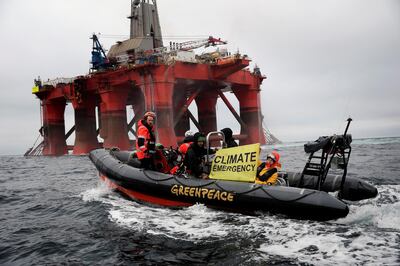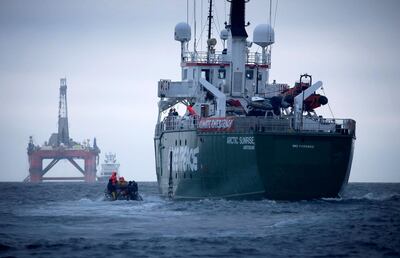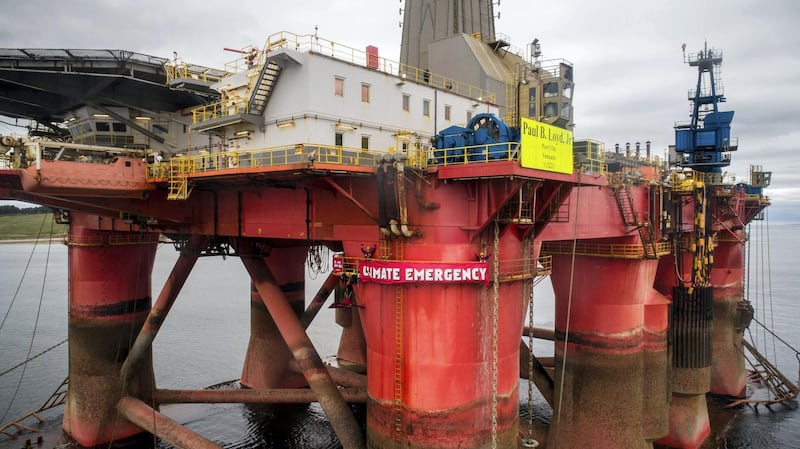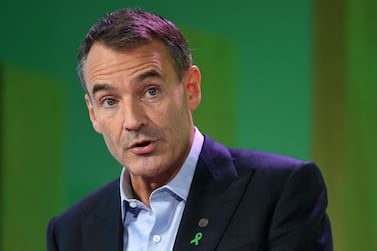A senior executive at environmental group Greenpeace avoided jail on Friday after the group defied court orders to board a North Sea oil rig in a protest against climate change.
Greenpeace UK’s executive director, John Sauven, had faced a jail sentence of up to two years after the group occupied the rig and chased it out to sea over 10 days in June 2019.
A Scottish judge, Sarah Wolffe, found that the group’s executives had sought to “deflect liability” from themselves after 14 people were arrested over the protest, including those who boarded the rig in the Cromarty Firth in Northern Scotland.

After the boarding operation, the Greenpeace ship Arctic Sunrise followed it out to sea, forcing the operators into taking evasive action.
The judge had “no hesitation” in finding that senior officials were involved in the operation, from the planning stages, boarding the rig and to impeding its progress out to sea, but said she would exercise leniency and fined the group £80,000 (Dh365,000). The judge said that Greenpeace had £22 million in income in 2019.
The US oil company Transocean, which was operating the rig on behalf of BP, had sought a jail term or heavy fines for the environmental group for boarding its vessel, which had nearly 100 staff on board. It claimed that the Greenpeace occupation cost it £140,000 a day.
In a statement, Greenpeace said: “We are disappointed that BP’s rig operator Transocean has sought to punish us for trying to protect the planet.
“We stand by our reasons for taking action to stop BP’s reckless drilling, which is driving us deeper into the climate emergency.”
The boarding of the rig was part of the group’s broader campaign against North Sea oil drilling.
Greenpeace said the operation was necessary to stop BP from extracting 30 million barrels of oil from new wells in the North Sea’s Vorlich field. It has launched an attempt through the courts to cancel the company’s drilling licence in the North Sea.

The slump in oil prices linked to the coronavirus pandemic has raised questions about the future of drilling in the region. Questions were already being asked whether the industry fitted with the UK’s legally binding commitment to reduce greenhouse gas emissions to net zero by 2050.
Transocean declined to comment.








